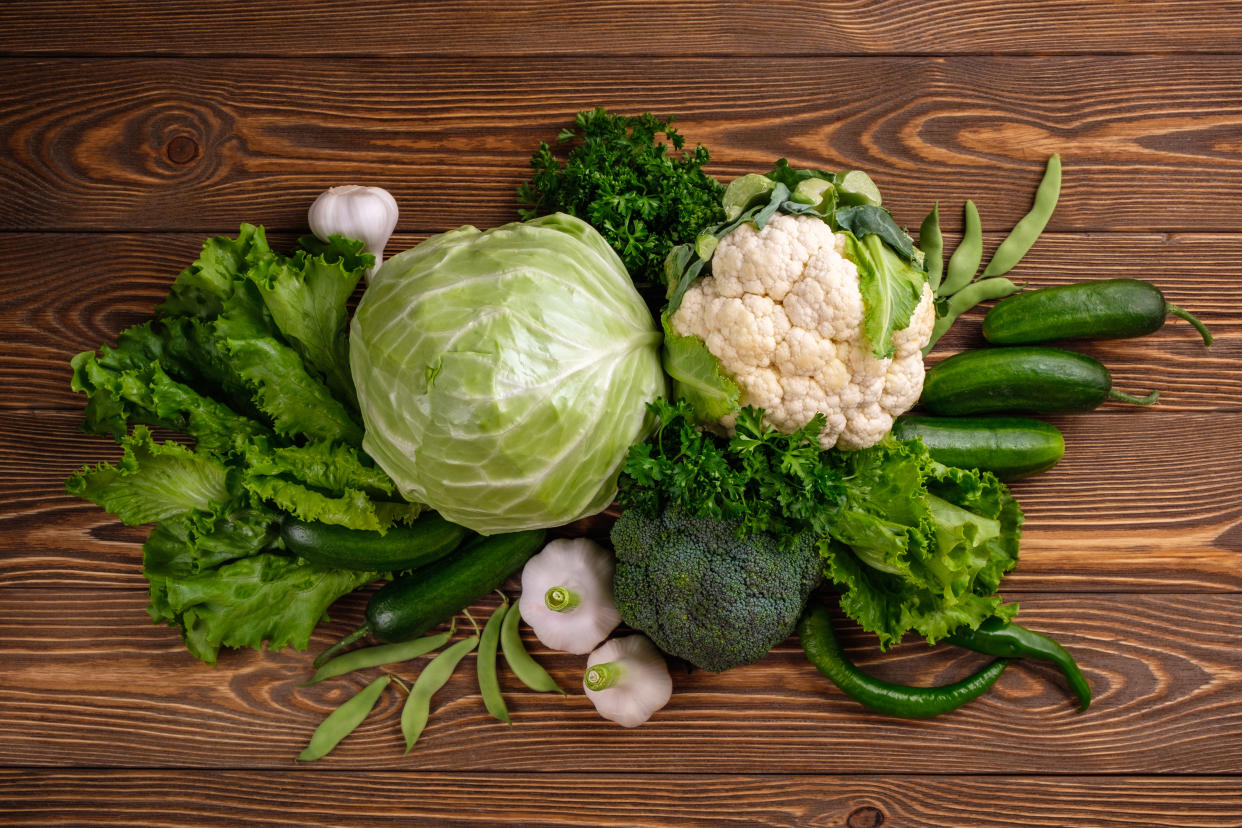10 foods that can help you beat bloating

Bloating is a common ailment among Brits, with some research suggesting it can affect between 10% to 25% of healthy people on a regular basis.
While bloating can be a symptom of another underlying condition such as irritable bowel syndrome (IBS), a food intolerance, constipation, or even ovarian cancer in rare cases, it is usually linked to digestion and a build up of gas in your gut.
"Bloating to some degree is a normal component of our digestive system," nutritionist and author of How to Stay Healthy, Jenna Hope tells Yahoo UK.
"Normal bloating can be caused due to excess gas or consuming slightly too much food. However, if your bloating is impacting your day to day quality of life or your relationship with food then it’s definitely something which should be assessed by a healthcare professional."
Foods to avoid if you’re bloated
Some common foods that can exacerbate bloating include:
Beans and legumes
Broccoli
Fizzy drinks
Onions
Dairy products
Garlic
Apples
Beer
Wheat
Cabbage
However, Hope says that because every gut is different, it’s worth working closely with a healthcare professional to find out which foods are triggering your bloating.
"It’s always important to seek advice from your GP first to ensure there are no underlying medical conditions which may be causing you to bloat more," she adds.

Foods to eat to minimise bloating
Some foods that can minimise bloating include:
Berries
Green or peppermint tea
Fermented foods like kefir, kombucha or kimchi
Oats
Quinoa
Kiwi fruit
Turmeric
Ginger
Fennel
Avocado
"If you’re experiencing normal bloating, ensuring that you’re staying hydrated and eating slowly, mindfully and in a relaxed state can help to minimise bloating," Hope explains.
"Additionally supporting optimal gut health with a high fibre diet and one which is packed with a variety of plant foods can help in the long-term. Do be careful to slowly increase the fibre in your diet rather than upping it all at once as this can contribute to bloating."

How to identify the source of chronic bloating
"Chronic bloating can be due to a range of issues including: intolerances, gut disorders, irritable bowel syndrome and even high levels of stress," Hope explains. "It’s always best to seek advice from your GP to ensure there’s nothing serious underlying."
Once you have sought out advice, Hope adds that trying out a food and gut diary can help you to identify common triggers, which will help you find the foods that are causing bloating for you.
"It’s important to highlight that often what’s perceived to be a food intolerance may actually be that the current state of the gut cannot digest a certain food properly," she explains. "However, when gut health is improved you may be able to consume the food in question."
Gut health: Read more
How coffee can positively impact your gut health (Yahoo Life UK, 3-min read)
Exercises to improve your gut health, from burpees to lunges (Yahoo Life UK, 5-min read)
How your gut health can impact your vaginal microbiome (Yahoo Life UK, 6-min read)


